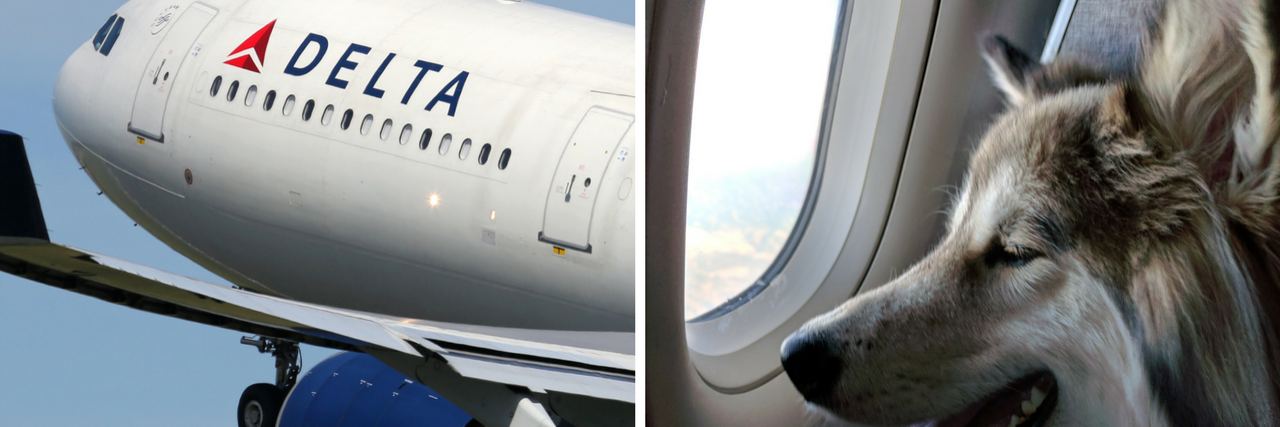Delta Air Lines Tightens Regulations for Service and Emotional Support Animals
Passengers flying Delta Air Lines will need better documentation for their service or emotional support animal, according to a statement from the airline issued on Friday.
Starting March 1, passengers must provide proof of health or vaccinations 48 hours before the flight. Flyers are already required to bring a letter from a doctor or licensed mental health professional, but anyone with a psychiatric service animal or emotional support animal will need to have an additional signed document to show that the animal can behave and is not an untrained or aggressive household pet.
The new regulations are an attempt to crack down on animals passing as service or support animals and keep passengers and actual service and support animals safe from untrained animals.
According to the American Disabilities Act (ADA), a service animal is a dog that is trained to perform tasks to help an individual with a physical, sensory, psychiatric, intellectual or other mental disability. Service animals can go just about anywhere in public, excluding places with legitimate safety concerns like a surgical room. Under the Air Carrier Access Act, service animals must be allowed on airplanes unless it obstructs aisles or emergency exits.
Emotional support animals (ESA) are not protected under the ADA and do not have to be trained for specific duties. ESAs are typically certified by online registries and require documentation from a doctor or mental health professional to qualify. ESAs work to provide companionship, relieve loneliness and help those with depression and anxiety. ESAs are not allowed in all public places and are only federally protected in housing situations that may not allow animals. ESAs are also covered under the Air Carrier Access Act, though the airline can require documentation in advance.
“Customers have attempted to fly with comfort turkeys, gliding possums known as sugar gliders, snakes, spiders and more. Ignoring the true intent of existing rules governing the transport of service and support animals can be a disservice to customers who have real and documented needs,” the airline said.
Delta said it has seen an 84 percent increase in reported animal incidents including urinating and defecating in the cabin and aggressive behavior such as barking, growling and biting since 2016.
Delta relied on feedback from its disability advisory board to formulate the new regulations.
“We have received extensive customer feedback through calls, emails and social posts — many from among those within the disability community — urging Delta to take action,” John Laughter, Delta’s senior vice president for corporate safety, security and compliance, said. “This new policy is our first step in better protecting those who fly with Delta with a more thoughtful screening process.”
Got a tip for our news team? Send it to news@themighty.com.
Photo by Boarding1Now and Ashley Kristoff

